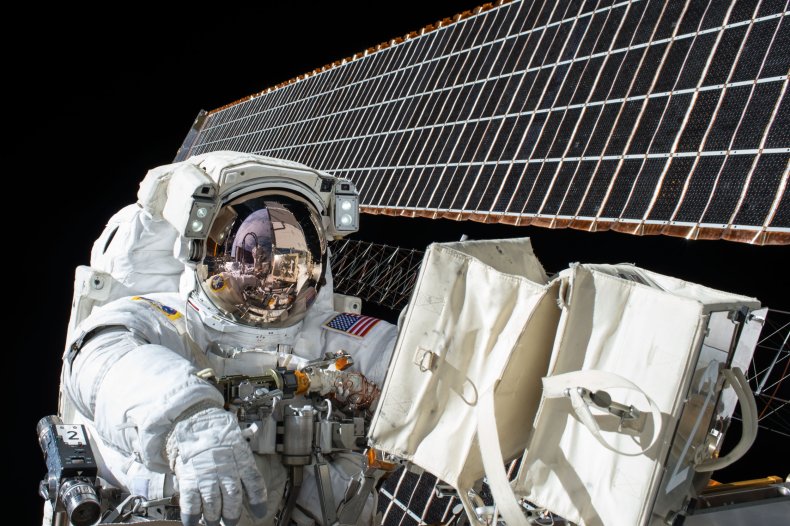cientists have uncovered a process that may help to explain why space travel appears to weaken the immune system of astronauts.
When astronauts travel in space, many genes that play a role in immune function are suppressed, a study published in the journal Frontiers in Immunology has found.
"A weaker immunity increases the risk of infectious diseases limiting astronauts' ability to perform their very demanding work in space. If an infection or an immune-related condition was to evolve to a severe state requiring medical care, astronauts while in space would have limited access to care and medication," Odette Laneuville, an author of the study, told Newsweek.
The findings could have implications for designing mitigation strategies that could prevent the suppression of immune genes while undergoing long periods of space travel.
There is increasing evidence that astronauts are more susceptible to infections while in space. For example, those who spend long stints aboard the International Space Station (ISS) frequently suffer from conditions such as skin rashes, as well as respiratory and non-respiratory diseases.

Research has also shown that astronauts tend to shed more live virus particles, which has been demonstrated with Epstein-Barr virus and varicella-zoster—the pathogen that causes shingles.
In the Frontiers study, researchers studied gene expression in the white blood cells of 14 astronauts.
The astronauts included 11 men and three women who had lived aboard the ISS for periods of around four to six months between the years 2015 and 2019.
For the research—which was conducted at the University of Ottawa and funded by the Canadian Space Agency—scientists analyzed blood samples collected at various points before, during and after flight.
"Then blood tubes are sent to my laboratory at the University of Ottawa for isolation of white blood cells and then of the genetic material we call RNA—products of gene expression," Laneuville explained.
"The RNA was then sequenced at a high throughput sequencing facility and results sent to my laboratory for extensive analysis."
Gene expression is the process by which the instructions in our DNA are converted into a functional product, such as a protein.
Typically, only a small percentage of each cell's genes are expressed—or "turned on"—at any given time. The rest are repressed, or turned off. The process of turning genes on and off is known as gene regulation.
Gene regulation is a key part of normal development, but the expression of genes in an organism can be affected by the environment around it. And it appears this also applies to space flight.
In the Frontiers study, the researchers identified a cluster of genes in the astronauts—which code for proteins—that were suppressed while they were in space.
"Here we show that the expression of many genes related to immune functions rapidly decreases when astronauts reach space, while the opposite happens when they return to Earth after six months aboard the ISS," Laneuville said in a statement.
The results indicate that the changes in expression of these genes as a result of space travel can lead to a rapid weakening of the astronauts' immune systems.
Fortunately for the astronauts, the scientists observed that most of the genes that had been affected returned to their pre-flight levels of expression within a year of their return to Earth. Typically, this occurred much sooner—after a few weeks, on average.
It is not yet clear though how long it takes for immune function in these astronauts to be fully restored, with factors such as age, sex, childhood exposure to pathogens, and genetic differences, likely playing a role.
Nhận xét
Đăng nhận xét